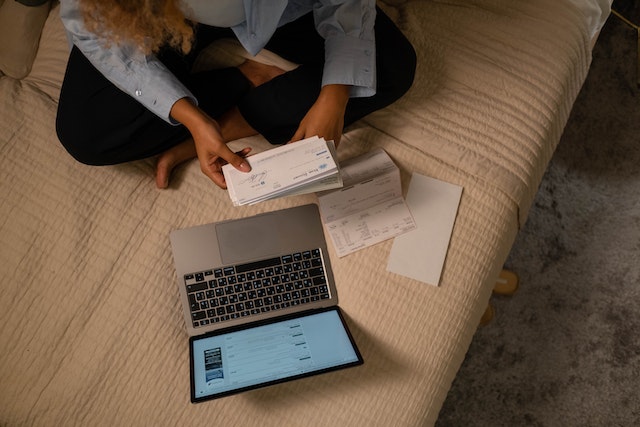A check is a negotiable instrument that serves as a promise to pay a specified amount of money to a designated payee or holder. When a check is presented for payment, the bank must ensure that the check is valid, the signature is authentic, and the account has sufficient funds to cover the payment. However, there are instances where a check may be cashed twice, resulting in duplicate payments. In such cases, the question arises as to who is liable for the double payment.

The party that cashes the check twice is primarily liable for the double payment. For example, if the payee cashes the check twice by depositing it twice or presenting it to two different banks for payment, the payee is responsible for returning the excess payment to the bank or the person who issued the check. This is because the payee is the one who received the double payment and has an obligation to return the excess amount.
Similarly, if a check is stolen or fraudulently endorsed by a third party, the person who cashes the check twice is liable for the double payment. The person who stole or fraudulently endorsed the check has committed a criminal act and is responsible for any damages resulting from their actions. In such cases, the person who issued the check is not liable for the double payment since they did not authorize the duplicate cashing of the check.
However, in some cases, the bank may also be held liable for a check cashed twice. Banks have a duty to ensure that they do not pay a check twice, and they have a system of checks and balances to prevent duplicate payments. This includes verifying the signature on the check, checking the account balance, and verifying that the check has not been previously cashed. If a bank fails to perform its due diligence and pays a check twice, it may be held liable for the double payment.
For example, if a bank processes a check twice due to an error in its system or a glitch in its software, the bank may be held liable for the double payment. Similarly, if a bank fails to verify that a check has not been previously cashed and pays the check twice, the bank may also be held liable for the double payment. In such cases, the bank may be required to reimburse the person who issued the check for the excess payment.
It is also important to note that the person who issued the check may be held liable for the double payment if they were negligent in preventing the check from being cashed twice. For example, if the person issued a post-dated check but failed to inform the bank or the payee, and the check was cashed twice, the person who issued the check may be held liable for the double payment. Similarly, if the person issued a check to a party who was not authorized to cash the check, and the check was cashed twice, the person who issued the check may also be held liable for the double payment.
In conclusion, the party that cashes the check twice is primarily liable for the double payment. This includes the payee who deposits the check twice or presents it to two different banks for payment, or a third party who steals or fraudulently endorses the check. However, banks may also be held liable for a check cashed twice if they fail to perform their due diligence in preventing duplicate payments. Finally, the person who issued the check may be held liable for the double payment if they were negligent in preventing the check from being cashed twice.
